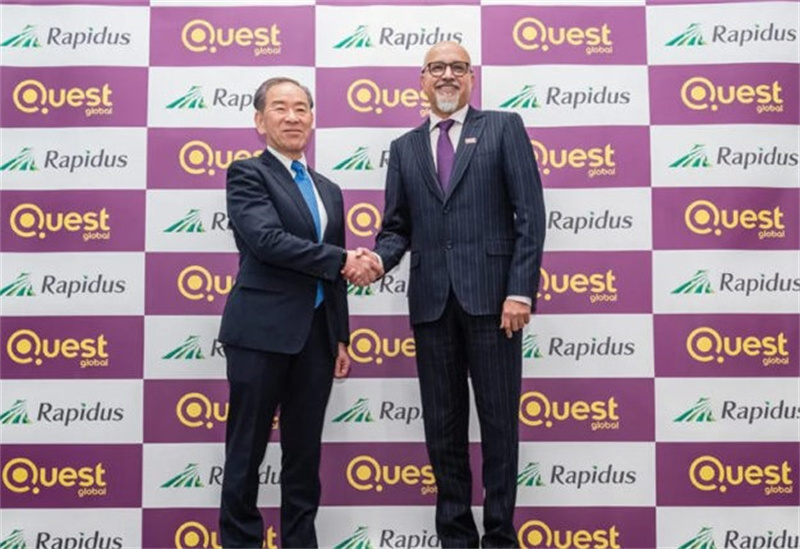Japan's state-backed semiconductor startup Rapidus has received an additional ¥800 billion (US$5.4 billion) in government funding, bringing its total financial support to US$11.5 billion. This investment aims to accelerate the development of next-generation 2-nanometer chips, with Japan positioning itself as a key player in the global semiconductor race.
Test Production Begins, Mass Production Targeted for 2027
On Tuesday (April 1st), Rapidus began test production of its 2nm chips at its Hokkaido facility. The company remains on track to mass-produce these chips by 2027, a milestone that could put Japan on par with Taiwan Semiconductor Manufacturing Co. (TSMC) in advanced chipmaking.
Rapidus CEO Atsuyoshi Koike acknowledged the significant challenges ahead. “Developing 2nm technology and the know-how for mass production was extraordinarily difficult,” he said. “We will take things step by step to lower error rates and secure customer trust.”
A critical breakthrough came as Rapidus successfully conducted extreme ultraviolet (EUV) lithography using ASML Holding NV's equipment for the first time. The first batch of test chips is expected to be completed in July 2025.
New Partnership with Singapore's Quest Global
As part of its expansion strategy, Rapidus announced on March 25 that it has signed a memorandum of understanding (MOU) with Singapore-based semiconductor firm Quest Global to establish a strategic partnership for developing advanced 2nm solutions in the AI semiconductor era.

Under the agreement, Rapidus will become Quest Global's new foundry partner, enabling Quest Global to offer its clients a wider range of semiconductor solutions. Quest Global's customers will have the option to adopt Rapidus' cutting-edge 2nm GAA process, providing low-power, high-performance AI chips to meet the rapidly growing demand for AI computing.
Quest Global serves a broad range of industries, including aerospace, defense, and automotive, offering semiconductor design and foundry partner selection support. Through this collaboration, Rapidus aims to expand its customer base and strengthen its presence in the AI semiconductor market.
Government Support Grows Amid Tech Sovereignty Push
The Japanese government's increased financial backing underscores the strategic importance of Rapidus. The funds will be used to acquire cutting-edge equipment, secure raw materials, and implement production technologies. Additionally, a proposed bill in Japan's Diet could make the government a shareholder in Rapidus, with another ¥100 billion (US$668 million) in potential funding on the table.
Japan's aggressive push into semiconductor manufacturing is largely driven by concerns over technological reliance on Taiwan, which faces geopolitical uncertainties. The country is striving to regain its former leadership in chipmaking, a sector where it has fallen behind the U.S., Taiwan, and South Korea over the past decades.
Challenges Ahead: Can Rapidus Catch Up?
Despite strong government support, some analysts remain skeptical about Rapidus' ability to achieve commercial 2nm production by 2027.
"Jumping straight into making state-of-the-art semiconductors is almost unrealistic,” said Kazuyoshi Saito, an analyst at Iwai Cosmo Securities. He noted that Rapidus must master ASML's latest lithography machines, a steep learning curve for its engineers.
Even so, with billions in funding, strategic partnerships like the one with Quest Global, and support from global industry players, Rapidus is making a bold bet to place Japan back on the map as a semiconductor powerhouse.
+86 191 9627 2716
+86 181 7379 0595
8:30 a.m. to 5:30 p.m., Monday to Friday
